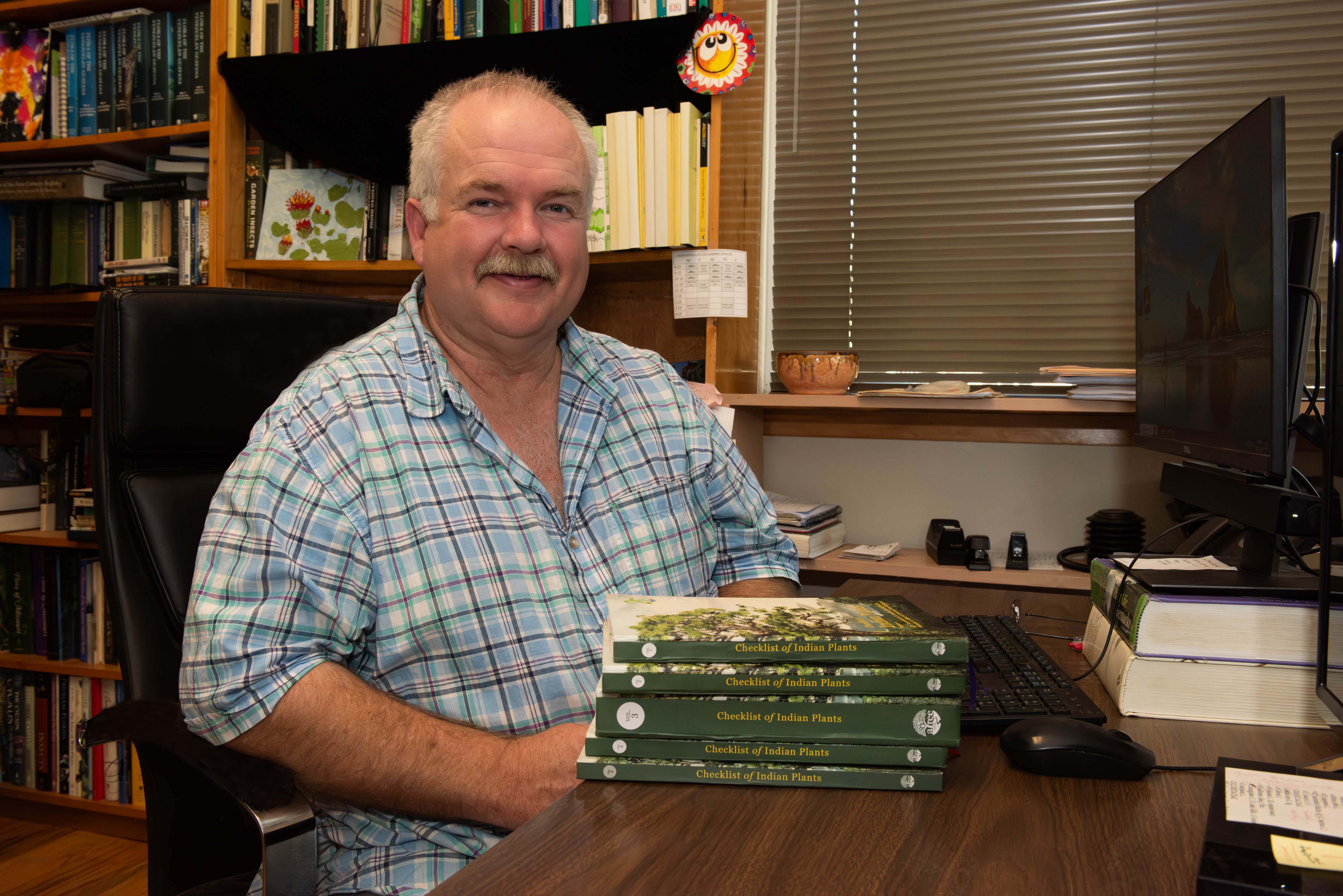UAM NEWS
Abbott Publishes Significant Catalog of Indian Plants

Dr. Richard Abbott, of the University of Arkansas at Monticello, and a distinguished team of international co-authors recently published the first five volumes of a planned 13-volume series entitled “Checklist of Indian Plants.” The work is a catalog of the distribution, natural history and classification of the plant life of one of the most biodiverse countries in the world.
Dr. Abbott is an assistant professor of biology and serves as the director of the Sundell Herbarium at UAM. He has spent thousands of hours poring through published descriptions of every species of plant that occurs in India, attempting to determine the proper taxonomy and classification of each. Dr. Abbott explained that this new work will replace an inventory of Indian plants that was constructed in the 1890s, noting, “India makes up only about two percent of the earth’s land surface but contains eight percent of the world’s biodiversity. India recently surpassed China as the most populous country on the planet. This puts increased pressure on the ecosystems of India and makes it imperative that conservation biologists have the tools they need to try to preserve the habitat. Understanding what plants are there, and where they exist, is the basic first step in that conservation work.”
Dr. Abbott began his work on the project during his tenure at the Missouri Botanical Garden in St. Louis and completed it after moving to UAM. His work required him to communicate with botanists from around the world, including some of the preeminent experts in the field, about specific plants in their areas of expertise.
Dr. Shuneize Slater, dean of the School of Mathematical and Natural Sciences at UAM, was extremely complimentary of the work, stating, "Dr. Abbott has extensive experience studying the flora of Latin America and Asia, as well as the southeastern United States. This kind of expertise is a great resource for our biology majors as well as students in forestry and wildlife. I find it extremely exciting that this work, by one of our professors, will be the resource on Indian flora for decades to come.”
The checklist is published by the Ashoka Trust for Research in Ecology and the Environment (ATREE), based in Bengaluru, India. Regain Ganesan, senior fellow of ATREE, said, “The plant checklist will benefit the public, students, academicians, researchers, biodiversity managers and policymakers. It will help in the conservation of biodiversity and the effort to make sure that resources are sustainably used.”
The remaining volumes will be released in the coming months.
For more information, contact the UAM School of Mathematical and Natural Sciences at (870) 460-1016.